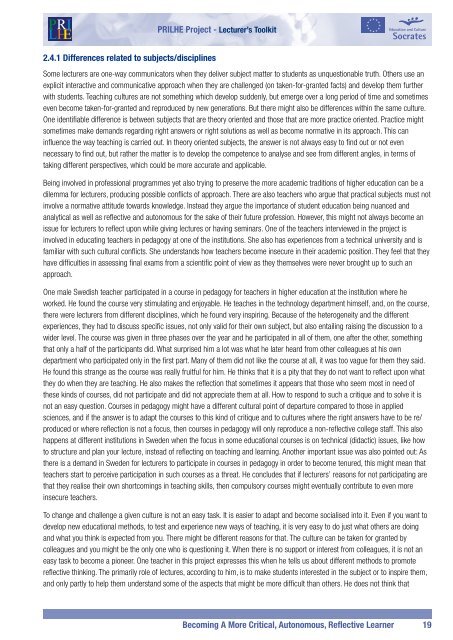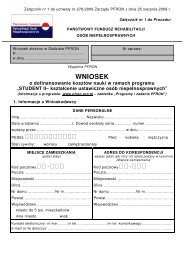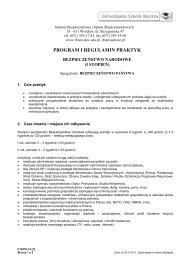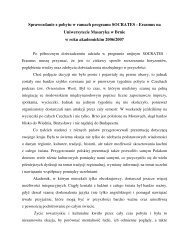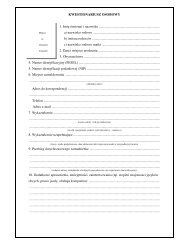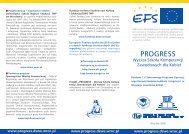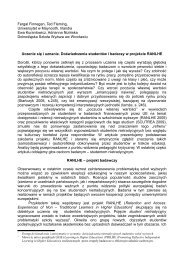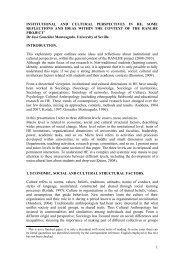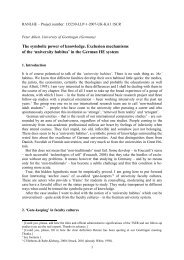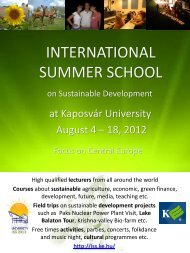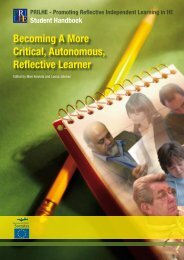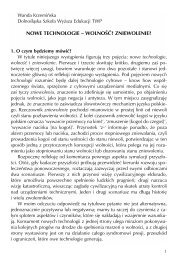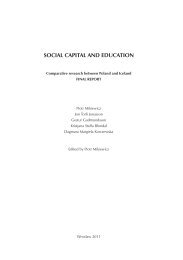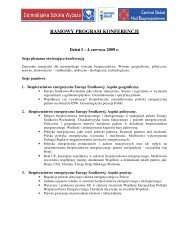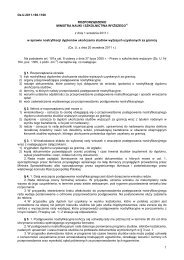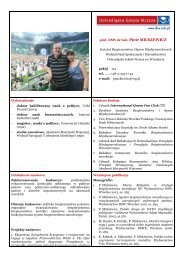Becoming A More Critical, Autonomous, Reflective Learner
Becoming A More Critical, Autonomous, Reflective Learner
Becoming A More Critical, Autonomous, Reflective Learner
You also want an ePaper? Increase the reach of your titles
YUMPU automatically turns print PDFs into web optimized ePapers that Google loves.
PRILHE Project - Lecturer’s Toolkit<br />
2.4.1 Differences related to subjects/disciplines<br />
Some lecturers are one-way communicators when they deliver subject matter to students as unquestionable truth. Others use an<br />
explicit interactive and communicative approach when they are challenged (on taken-for-granted facts) and develop them further<br />
with students. Teaching cultures are not something which develop suddenly, but emerge over a long period of time and sometimes<br />
even become taken-for-granted and reproduced by new generations. But there might also be differences within the same culture.<br />
One identifiable difference is between subjects that are theory oriented and those that are more practice oriented. Practice might<br />
sometimes make demands regarding right answers or right solutions as well as become normative in its approach. This can<br />
influence the way teaching is carried out. In theory oriented subjects, the answer is not always easy to find out or not even<br />
necessary to find out, but rather the matter is to develop the competence to analyse and see from different angles, in terms of<br />
taking different perspectives, which could be more accurate and applicable.<br />
Being involved in professional programmes yet also trying to preserve the more academic traditions of higher education can be a<br />
dilemma for lecturers, producing possible conflicts of approach. There are also teachers who argue that practical subjects must not<br />
involve a normative attitude towards knowledge. Instead they argue the importance of student education being nuanced and<br />
analytical as well as reflective and autonomous for the sake of their future profession. However, this might not always become an<br />
issue for lecturers to reflect upon while giving lectures or having seminars. One of the teachers interviewed in the project is<br />
involved in educating teachers in pedagogy at one of the institutions. She also has experiences from a technical university and is<br />
familiar with such cultural conflicts. She understands how teachers become insecure in their academic position. They feel that they<br />
have difficulties in assessing final exams from a scientific point of view as they themselves were never brought up to such an<br />
approach.<br />
One male Swedish teacher participated in a course in pedagogy for teachers in higher education at the institution where he<br />
worked. He found the course very stimulating and enjoyable. He teaches in the technology department himself, and, on the course,<br />
there were lecturers from different disciplines, which he found very inspiring. Because of the heterogeneity and the different<br />
experiences, they had to discuss specific issues, not only valid for their own subject, but also entailing raising the discussion to a<br />
wider level. The course was given in three phases over the year and he participated in all of them, one after the other, something<br />
that only a half of the participants did. What surprised him a lot was what he later heard from other colleagues at his own<br />
department who participated only in the first part. Many of them did not like the course at all, it was too vague for them they said.<br />
He found this strange as the course was really fruitful for him. He thinks that it is a pity that they do not want to reflect upon what<br />
they do when they are teaching. He also makes the reflection that sometimes it appears that those who seem most in need of<br />
these kinds of courses, did not participate and did not appreciate them at all. How to respond to such a critique and to solve it is<br />
not an easy question. Courses in pedagogy might have a different cultural point of departure compared to those in applied<br />
sciences, and if the answer is to adapt the courses to this kind of critique and to cultures where the right answers have to be re/<br />
produced or where reflection is not a focus, then courses in pedagogy will only reproduce a non-reflective college staff. This also<br />
happens at different institutions in Sweden when the focus in some educational courses is on technical (didactic) issues, like how<br />
to structure and plan your lecture, instead of reflecting on teaching and learning. Another important issue was also pointed out: As<br />
there is a demand in Sweden for lecturers to participate in courses in pedagogy in order to become tenured, this might mean that<br />
teachers start to perceive participation in such courses as a threat. He concludes that if lecturers’ reasons for not participating are<br />
that they realise their own shortcomings in teaching skills, then compulsory courses might eventually contribute to even more<br />
insecure teachers.<br />
To change and challenge a given culture is not an easy task. It is easier to adapt and become socialised into it. Even if you want to<br />
develop new educational methods, to test and experience new ways of teaching, it is very easy to do just what others are doing<br />
and what you think is expected from you. There might be different reasons for that. The culture can be taken for granted by<br />
colleagues and you might be the only one who is questioning it. When there is no support or interest from colleagues, it is not an<br />
easy task to become a pioneer. One teacher in this project expresses this when he tells us about different methods to promote<br />
reflective thinking. The primarily role of lectures, according to him, is to make students interested in the subject or to inspire them,<br />
and only partly to help them understand some of the aspects that might be more difficult than others. He does not think that<br />
<strong>Becoming</strong> A <strong>More</strong> <strong>Critical</strong>, <strong>Autonomous</strong>, <strong>Reflective</strong> <strong>Learner</strong> 19


